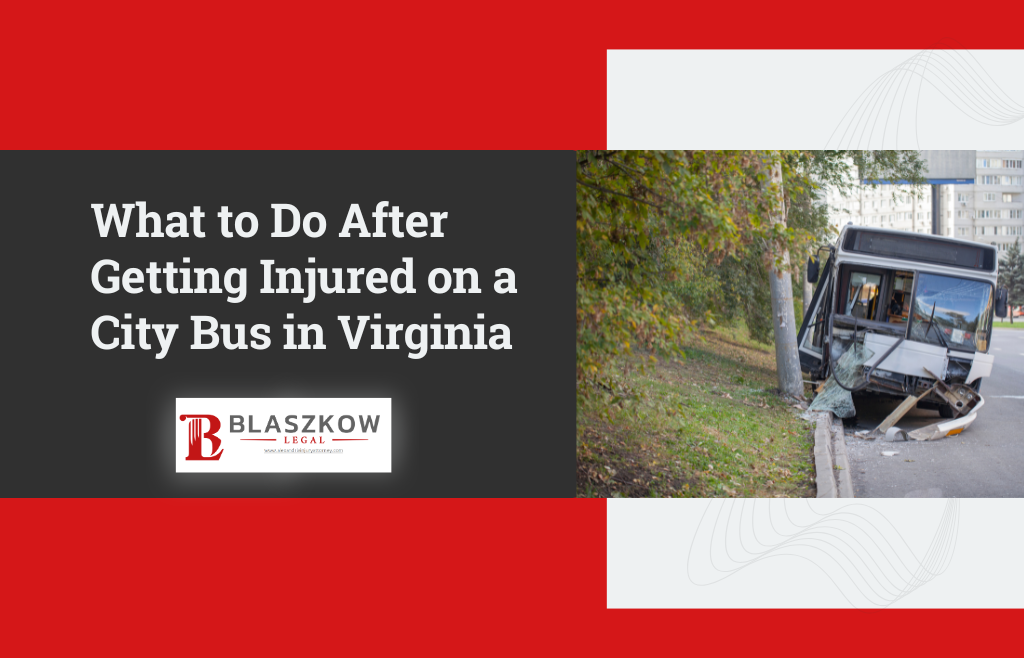
Public transit is supposed to be safe. However, when a city bus such as DASH or Fairfax Connector, runs a red light or a transit driver slams into your car. A packed bus lurches forward, throwing riders to the floor. These aren’t just accidents—they’re negligence. But if you think the city, county, or state will just pay for your injuries, think again.
You have one shot to do this right. Miss a deadline, send notice to the wrong office, or fail to document the wreck, and the government walks away without paying a dime. Their lawyers will use every loophole to get your case thrown out. Don’t let them.
Sovereign Immunity—But Not Always
Virginia law gives government entities a level of protection known as sovereign immunity. This means that, in many situations, a city, county, or state agency can’t be sued for negligence. But public transit systems operate as a business, charging fares and providing a service. That means they don’t get full immunity. If a government-run bus system causes an accident, they can be held liable, but only if you follow the legal process exactly.
Additionally, some of these buses are operated by private companies, contracted by the government, regardless of what their uniforms say!
The Notice Requirement
Unlike regular car accident claims, pursuing a claim against a government agency starts with a notice of claim, pursuant to the Local Government Tort Claims Act. You don’t just file a lawsuit; first, you must send a written notice to the correct office and governmental officer within a strict deadline. And, your letter (what we call the “notice”) must have very specific information contained therein.
- Time Limit: In Virginia, many local governments require notice within six months of the accident. Some claims allow up to one year, depending on the agency involved.
- What to Include: The notice must have:
- The date and time of the crash
- Where it happened
- A description of exactly what occurred
- The nature of your injuries
- Where to Send It: This varies by jurisdiction. It usually goes to the local executive, such as mayor or county administrator, with a copy to the city attorney, county attorney, or another designated official.
Fail to send the notice on time, or send it to the wrong place? The government can get the case thrown out—no matter how severe your injuries are or how clear the bus driver’s fault is.

Lawsuits Against Government Entities
For most personal injury cases in Virginia, the deadline to file a lawsuit is two years from the date of the injury. But if you didn’t submit a proper notice of claim first, you may lose your right to sue entirely—even if you’re still within that two-year window.
Depending on the agency that operated the bus, different laws apply:
- Local Tort Claims – If a city or county bus caused the crash, you must follow that locality’s notice and filing rules (Virginia Code 15.2-209). Notice must be provided with six months!
- Virginia Tort Claims Act – If the bus was operated by a state agency, you must follow state-specific procedures (Virginia Code§ 8.01-195.6). Notice must be provided within 1 year!
- Federal Tort Claims Act – If a federal government vehicle (like a postal service truck) was involved, you must follow federal procedures (Federal Tort Claims Act). Notice and claim must be filed within 2 years!
Each of these claims has its own notice deadlines and procedural rules. Filing a claim under the wrong system could mean losing your right to recover damages.
Protecting Your Case
People who don’t preserve their rights lose their rights. Bus accident cases aren’t just about sending paperwork on time. You need evidence to prove liability and damages.
- Identify the Right Agency – Was it a city bus, a county transit service, or a state-owned vehicle? The responsible entity determines the claim process.
- Preserve Your Rights – File the correct notices and legal documents before deadlines expire.
- Protect Your Evidence – The more proof you have, the stronger your case. Gather:
- Police or accident reports
- Witness names and statements
- Photos or videos of the accident scene
- Medical records and treatment bills
- Bus maintenance records (which may require legal action to obtain)
Government agencies will fight claims aggressively. They’ll argue that missing paperwork, unclear evidence, or slight procedural missteps should get the case dismissed. The burden is on you to prove negligence and follow the process to the letter.
Act Fast—Time Is Not on Your Side
If you were injured in a city bus accident, don’t wait. The clock starts ticking the moment the crash happens. A single missed deadline or incorrect filing could mean forfeiting your right to compensation. Call Blaszkow Legal, PLLC, at (703) 879-5910 to ensure your case is handled correctly from the start.
Alexandria/Northern Virginia Office:
5270 Shawnee Road #102, Alexandria, Va. 22312
703-879-5910
Richmond Office:
7824 Shrader Road, Richmond, Va. 23294
804-273-8929
Hablamos Espanol!





